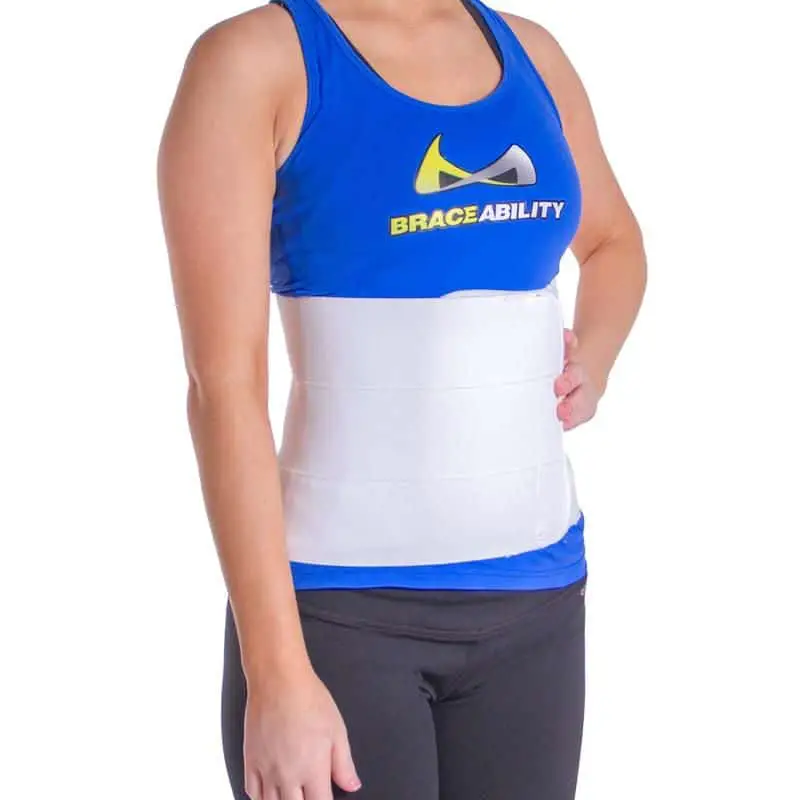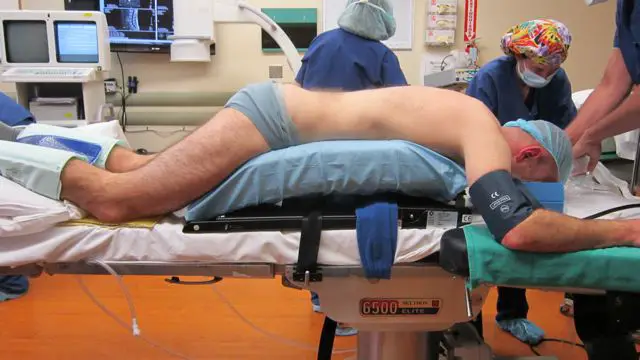How Long Does This Burning Pain Last
Once the fracture repair, there is almost nothing the patient can do to hurt it again. However, it would take time for the patient to return to normal. But if postoperative pain gets in the way of daily activities. And remains severe for up to six months, patients can suffer from chronic hernia and mesh pain.
Patients often want to know how long it takes to recover from burning pain hernia surgery. But from hernia surgery, the most common expectation of advanced hernia repair performed by a hernia specialist.
Once the hernias repair, there is almost nothing a patient cannot again. Pain after hernia surgery can occur immediately after surgery and can occur months or years after surgery. It can disappear after months, sometimes even years, after surgery.
After surgery, groin pain and discomfort may occur. This type of persistent pain, which can last up to three months after surgery. Usually improves once the mesh-related inflammation subsides. According to a national database, about one in five people suffer from burning pain discomfort that develops after a hernia has repaired.
Surgery Pain related to surgery is generally a temporary symptom that can occur in most cases up to 3 months after the time of the incision restructuring. Pains after hernia surgery could take longer than three months in some cases.
What Is Chronic Pain After Hernia Repair
Although known to be a common problem, chronic pain is known to be more common after inguinal hernia repair.
An inguinal hernia repair is done to fix an inguinal hernia. This type of hernia, also known as groin hernia, occurs when a tissue, such as a part of the intestine, protrudes through a weak spot in the abdominal wall.
Inguinal hernia repair is also a common procedure in the United States. In fact, it accounts for around 800,000 surgeries performed in the country each year.
However, because of the large figures of groin hernia repairs, the increasing number of patients that experience debilitating pain is also becoming an alarming problem.
Technically, chronic pain is defined as pain that is experienced three months after surgery. However, the use of surgical mesh can cause an inflammatory response due to your immune system recognizing it as a foreign object and attacking it. This response can cause pain for three to six months after hernia surgery.
These exact medical concerns are reported by plaintiffs who have filed hernia mesh lawsuits. According to patients who had a hernia repair using the mesh implant, they have experienced numerous side effects and injuries following the operation, ranging from headaches, to fever, groin pain, abdominal pain, hernia recurrence, and even mesh adhesion, which is the formation of scar tissue around the medical device and fuses it with other internal tissue or organs.
When Is Surgery Needed
Inguinal hernias can be repaired using surgery to push the bulge back into place and strengthen the weakness in the abdominal wall.
The operation is usually recommended if you have a hernia that causes pain, severe or persistent symptoms, or if any serious complications develop.
Complications that can happen as a result of an inguinal hernia include:
- obstruction where a section of the bowel becomes stuck in the inguinal canal, causing nausea, vomiting and stomach pain, as well as a painful lump in the groin
- strangulation where a section of bowel becomes trapped and its blood supply is cut off this requires emergency surgery within hours to release the trapped tissue and restore its blood supply so it does not die
Surgery gets rid of the hernia to prevent any serious complications, but there’s a chance it could return after the operation.
You May Like: How To Sleep With Middle Back Pain
There Is Some Belief That An Inguinal Hernia Causes Lower Back Pain A Myth Or Scientifically Proven
Surprisingly, 1 out of 10 people in the world, have an abdominal hernia in their life. In this case, the problem regarding an inguinal hernia causes lower back pain is still arising.
Correspondingly, people who complain about their lower back pain with inguinal hernia disease, sometimes asked if their hernia is linked with their back pain.
As we know, an abdominal hernia is a condition when the organs inside the body presses and penetrate out through the crack of the weakened abdominal muscle.
According to Dr. Bothwell in Abingtonhealth.org, men are more common to develop a hernia. And yes, one of the most well-known types of hernia is an inguinal hernia.
Simply based on their anatomy, its more common for men to develop hernias.As the testicles develop in the abdomen, it creates a small area of weakness that 20 percent of men dont feel, Dr. Bothwell said.
Are There Any Risks From The Operation

An inguinal hernia repair is a routine operation with very few risks. But a small number of hernias can come back at some point after surgery.
Other potential complications of an inguinal hernia repair include:
- blood or fluid building up in the space left by the hernia
- pain and numbness in the groin area caused by a nerve being damaged or trapped during surgery
- damage to the blood supply to the testicles
- damage to the vas deferens
Complications are more likely if you’re aged over 50, smoke or have another illness, such as heart disease or breathing problems.
Page last reviewed: 15 October 2021 Next review due: 15 October 2024
You May Like: What Does It Mean When You Have Lower Back Pain
How To Manage The Pain Until It Does Subside
The first thing your doctor would prescribe is medication.
- Anti-nausea medicine: Pain medicine may upset your stomach and make you feel like vomiting.
- NSAIDs: These medicines, such as ibuprofen, reduce inflammation, which helps lessen chronic groin pain.
Pain control techniques help you deal with the post-op discomfort instead of taking it away. Another procedure doctors may recommend is a minimally invasive procedure that uses electrical currents to dampen nerve pain, called nerve ablation or peripheral nerve field stimulation .
Here are some ways you can practice these non-pharmaceutical methods.
Activity modification: After hernia surgery, it is critical to begin exercising as soon as possible. Moving helps with respiration and digestion and speeding up the healing process and chronic postoperative pain relief. However, it may be painful to move, even though exercising and being active might help reduce stomach discomfort over time. You may need to relax in bed at first, with your upper body propped up on pillows. This allows you to breathe more easily and reduce hernia discomfort after surgery.
Cold and hot compresses: Both cold and heat can assist relieve some forms of postoperative pain. Some forms of pain are better treated with cold, while others are better treated with heat. After hernia surgery, your caregivers will tell you if cold and heat packs will assist with your stomach pain.
Pillow: Holding a pillow firmly against your incision can help lessen the pain.
How Do You Treat Chronic Pain After Inguinal Hernia Surgery
Treatment options available for treating chronic inguinal pain range from over-the-counter oral medications to surgery.
In most cases, chronic pain is treated with nonsteroidal anti-inflammatory drugs like ibuprofen or naproxen.However, if the pain doesnt go away after a few months, the doctor may try stronger medications such as prescription opioid medications.
Another option is a minimally invasive procedure called nerve blocks. It uses anesthetic injection to temporarily turn off a pain signal.
If medications and noninvasive procedures do not work, the last resort would be surgical treatment. Depending on the site or cause of the pain, a surgeon may recommend mesh removal or a neurectomy, which is a surgical removal of all or part of a nerve, or both.
Also Check: Should I Go To A Chiropractor For Lower Back Pain
What Is Chronic Pain
Chronic pain is defined as the presence of pain, irritation, hypersensitivity, or discomfort which was not present before surgery and has existed for at least 3 months following the surgery. While pain at the surgical site immediately and soon after a hernia mesh surgery may be normal, pain whether severe or not that lasts for a long time is not.
Chronic pain can limit your ability to live your life, work, urinate, defecate, and have intercourse. And chronic pain is often caused by a manufacturers defective device or a doctors negligence. 1
Pain can take many forms, such as burning, pins and needles, sharp pains, dull pains, tingling, and pain during sex. Pain may have many causes, from infection to nerve entrapment. Pain may occur all the time or during certain activities, such as walking or resting. And it may occur all over or in certain areas, such as groin pain or during ejaculation.
Tips For Decreasing Hernia Mesh Pain
According to University Hospitals, pain control techniques can help manage pain after surgery. Patients should get moving as soon as possible because it helps healing, but its important to take it slow. Holding a pillow against the incision can also decrease pain.
Relaxation techniques that take the mind off pain and decrease anxiety, such as playing cards, visiting with family, listening to music, meditating and watching TV, can help.
Recommended Reading: Is Motrin Good For Back Pain
Care Yourself At Home
You will obtain a general idea about your recovery and other related things through this article. However, each individual would recover after the surgery at a different pace. Besides, as mentioned above, it also depends upon the type of surgery you have undergone. Just follow the below-given steps to recover well and as soon as possible.
What Are The Symptoms
Symptoms vary from person to person and depend on the location of the surgery, type of surgery, type of mesh and any preexisting pain a patient may have had.
If postoperative pain gets in the way of daily activities and remains severe after six months, the patient may be suffering from chronic hernia mesh pain. Patients who have pain for longer than three months should speak to their surgeons about treatment options.
Mesh Pain Symptoms
Recommended Reading: What Can Severe Lower Back Pain Mean
Get A Second Opinion If Necessary
Dont assume you just have to live with the pain, Dr. Krpatasays.
We see patients with chronic pain after hernia repairsurgery and often the option to have additional surgery isnt even presented tothem, he says. While additional surgery isnt the right choice for everyone,for some, mesh removal or neurectomy procedures can provide significant orcomplete relief from chronic pain.
Ultimately, a multidisciplinary team approach, in collaboration with pain management, is required to determine which treatment options patients may respond to, Dr. Krpata says.
If you have talked with your surgeon about your options forrelief from chronic pain, but arent getting relief, it may be time to thinkabout choosing a specialist, Dr. Krpata says.
People Might Get Lower Back Pain After Inguinal Hernia Surgery By Several Factors These Include Their Pre

Lower back pain after inguinal hernia surgery is the topic often discussed by people even they dont have back problem before.
Did you know that for a hernia repair can only be done with surgery? Although not always necessary, complications caused by a hernia could not be improved without the surgical procedure.
Also Check: Why Does My Lower Back Feel Stiff
What Are Your Options For Relief
If you had surgery to repair a hernia and are still havingpain after three months, its time to talk with your surgeon, Dr. Krpata says.
Your surgeon should consider all possible treatment optionsto determine which is best for relieving your pain. Options may include:
- Mesh removal surgical removal of the abdominal mesh.
- Neurectomy surgical removal of a nerve or part of a nerve.
- PRP injections injection of a plasma-rich protein complex to promote healing and ease nerve pain.
- Nerve ablation a minimally invasive procedure that uses electrical currents to dampen nerve pain.
- Pain management through medication or anesthetic injections.
While injections, nerve ablation and medication can helpease pain, they dont do much to help the underlying issue, Dr. Krpata says.
What Are The Surgical Options For Hernia
There are two types of surgical repairs if you have a hernia. These include the following:
- Laparoscopic hernia repair. In such cases, several tiny incisions are made in the abdomen, through which a camera, light, and tools for surgery are allowed to pass in order to fix the hernia. This type of surgery may be done with or without a type of mesh to reinforce the surgical site.
- Open Hernia Repair. In such cases, the surgeon opens the inguinal area near the site of the hernia and repairs the weakened muscles. This can be done with or without mesh to reinforce the herniated area. The surgeon uses this method to fix inguinal hernias if they are small, infected hernias, strangulated hernias, or in infants.
If you have a hernia that results in pain or other uncomfortable symptoms, surgery is needed.
You May Like: How Firm A Mattress For Back Pain
When You Can Go Home
In addition to eating, drinking and being steady on your feet, youll have to be able to urinate before you can go home. And youll only be released if you have a responsible adult to drive you. You may also need to have someone staying with you for the first night. Its a good idea to have someone stay with you for the first several days if possible, so you can ease back into activity.
Stomach Bloating After Hernia Surgery
Perhaps the most common signs of hernia surgery failure are often stomach bloating. This can be due to other complications caused by hernia surgery. You have to expect that you might feel stomach bloating for a period after the implantation or surgery.
If you suffer from some type of hernia or if you have had surgery to correct these hernias. You can expect pain and swell for at least a few days after the procedure. You will likely have some discomfort at the interface for a week or two. And there may be restrictions on sexual activity for up to two weeks after surgery,
Note that the pain of a broken hernia mesh can occur at any time it could sometimes take months or years after surgery. Incisions can happen for several specific reasons. And people who have exercised excessive exercise, weight gain or pregnancy increases abdominal pressure.
This is very risky if the incisions have not fully healed up and may cause stomach bloating and pain. If the edges of the wound are not aligned properly after surgery, the incision will not heal properly, increasing the likelihood of stomach pain. It creates Burning Pain After Hernia Surgery.
If an emergency operation or surgery requires a large incision, such as an emergency appendix operation or a hip replacement, burning pain is more likely to occur. After hernia surgery, stomach pain is caused by injuries to the skin, muscles, or nerves during the operation.
Also Check: How To Get Rid Of Sharp Lower Back Pain
What Is An Incisional Hernia
First of all, what is happen when someone has an incisional hernia?
According to Teachmesurgery.com, an Incisional hernia is a type of a hernia that occurs in the abdominal wall due to imperfect healing on the previous incision.
It also can be caused by past abdominal surgery, such as an appendectomy.
In general, a hernia is a condition when the internal organs in the body press and protrude out through the wall of the abdominal muscle or the cavity in which it is contained.
As we know, the abdominal wall is generally strong enough to maintain the cavity. But if these layers are broken up because of previous surgery, an incisional hernia can occur.
What Is A Hernia And How Do You Know If You Have One
A hernia is a medical condition that is caused by the protrusion of an organ or tissue through a weakened area in the muscle or surrounding tissue. Hernias can occur in any body area but most often occur in the abdomen. Symptoms of a hernia include pain, swelling, and a feeling of heaviness in the affected area.
Hernias can be difficult to detect, as many people do not experience any symptoms. However, there are a few ways to tell if you have a hernia. Pain, swelling, and a feeling of heaviness in the affected area are all common hernia symptoms. If you are experiencing any of these symptoms, it is important to see a doctor.
You May Like: When Is Lower Back Pain Serious
What Is The Fastest Way To Recover From Hernia Surgery
All surgical recovery takes time. However, you can increase your odds of a speedy and successful recovery by:
- Following your healthcare provider’s instructions
- Taking pain medications when you need them
- Walking and moving as directed
- Sticking to a healthy diet
- Caring for your incision and preventing infection
- Keeping your follow-up appointments
What Happens After Inguinal Hernia Repair Surgery

Patients who have surgery usually need medication for several weeks to treat pain. Patients are also advised to not lift anything heavy or engage in vigorous activity.
Minimally invasive hernia surgery usually has a shorter recovery time. However, it may not be an option for patients with large hernias or for those who have had previous abdominal surgery.
Recommended Reading: What Mattress Should I Buy For Back Pain
Who Can Develop Postoperative Pain After Hernia Surgery
In this case, younger age is at high risk. According to a study published on Sciencedirect.com, roughly 58% of people under the age of 40 had constant, postoperative pain compared to 14 percent for people over 60 years old.
Additionally, people who have neuropathy in their medical history tend to be at higher risk of getting pain after incisional hernia surgery.